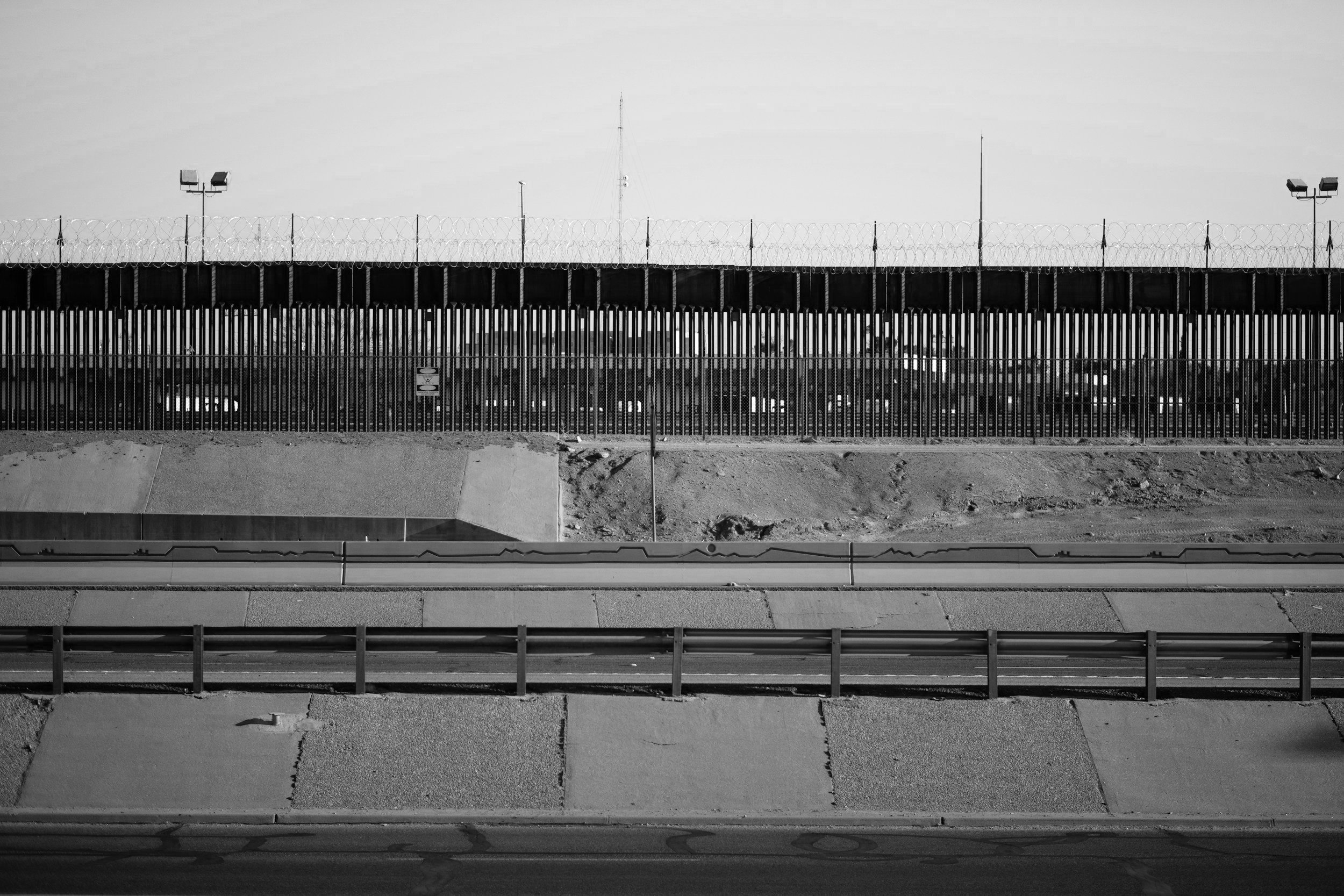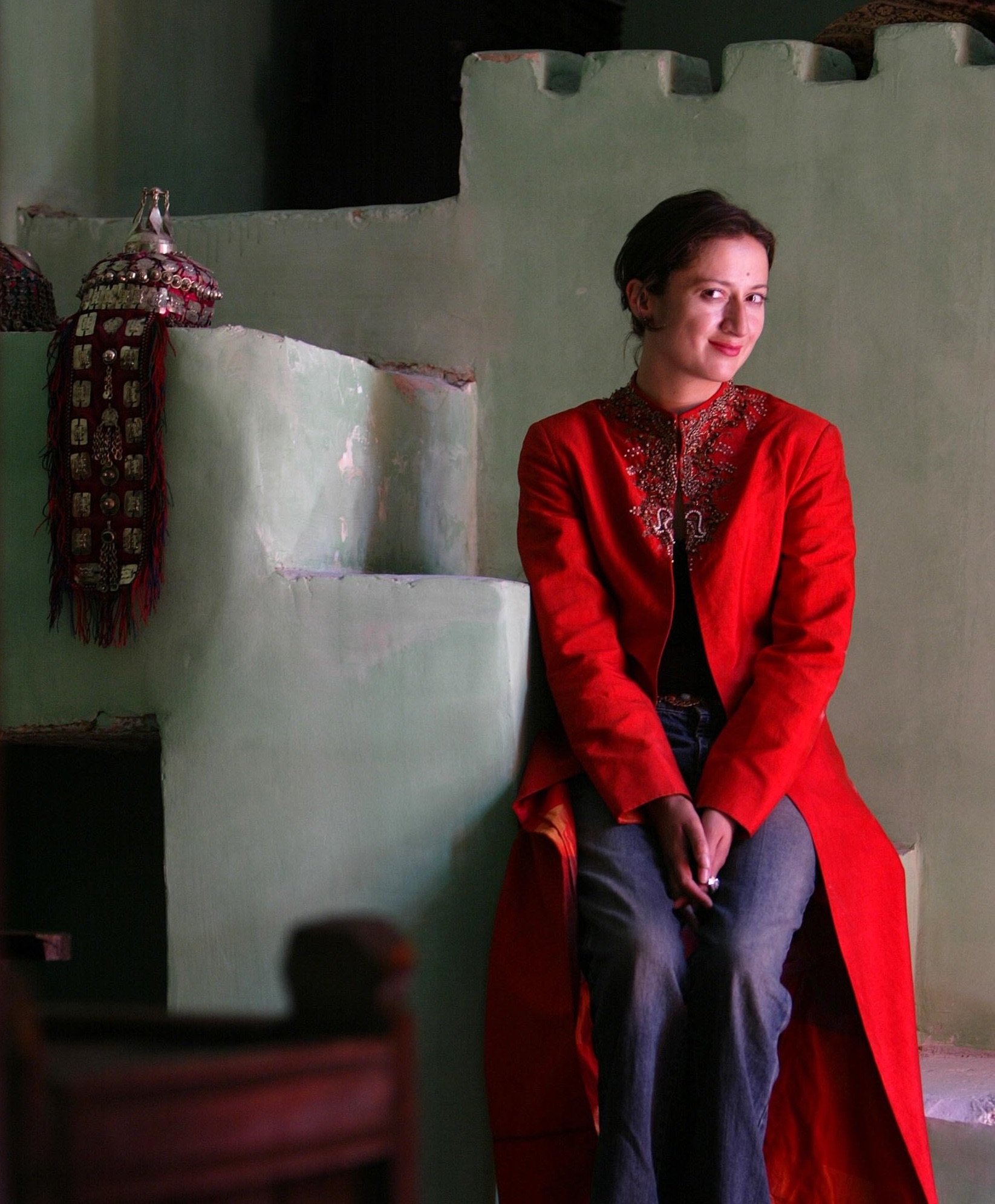
SEASON FOUR
The Walls We Build
What do borders really mean — and who do they serve? In Season 4, On Spec unpacks the visible and invisible lines that shape our world: from international boundaries to family rifts, from tribal divisions to walls built on profit and fear. We meet people confronting the limits imposed on them — by geography, by history, by politics — and finding ways to move beyond them.
We travel to France, Peru, Zambia, the Mediterranean Sea, and the frontiers of Armenia and Azerbaijan, as well as the U.S.-Mexico border. Along the way, we explore how borders influence migration, climate, war, and inequality — and how they cut across personal lives and global systems alike.
ATTENTION: If you are seeing a “Preview” badge in the podcast player, you can click on “On Spec Podcast” next to it to listen to the full episodes on Spotify.
SEASON FOUR’S GUEST HOST
Nadene Ghouri
“I love stories which bring a human face to the pressing issues and complex politics of the day. Those which enable us to better understand the human condition and the universal themes which connect us all.”
Nadene Ghouri is award-winning journalist specialising in human interest and human rights issues, Nadene freelances for major publications including The Guardian and The Mail On Sunday and is a former correspondent of both the BBC and Al Jazeera English. Nadene has reported from around the globe, including the Middle East, Africa and Asia. She lived for 7 years in Afghanistan, and is widely regarded as a specialist on Afghan issues.Today she also works as a screenwriter and is a New York Times bestselling non-fiction author.

Take a deep dive into the episodes below
The Colorado River runs through seven US states and crosses into Mexico, helping sustain 40 million people living along its banks and far beyond. It’s been dammed 15 times, part of an effort to capture its waters for the people living along its banks. But the Colorado is drying up, and communities along the river will soon face cuts in their allotted shares, part of a complex treaty between Mexico and the US on how to distribute the water. Alisa Reznick, a journalist from Arizona, travels along the river and speaks with the communities, business owners, and everyday people dependent on the flow.
Peru has long struggled with political, cultural, racial, and economic divides, a source of tension that propelled the leftist former schoolteacher Pedro Castillo to the Presidency last year. In the city of Lima, the complex social jigsaw puzzle manifests itself physically: the “Wall of Shame” is three meters high and ten kilometeres long, separating the affluent in La Molina from others in neighboring Villa Maria del Triunfo. Finnish journalist Kukka Maria Ahokas has little trouble crossing this and other barriers, and she introduces us to activist Carlos Hinostroza, who is trying to tear down the wall for all.
For several decades now, the region of Nagorno-Karabakh has been a source of tension between Armenia and Azerbaijan, occasionally resulting in a real war, like in 2020. But along the shores of lake Joghaz, there are villagers old enough to recall what it was like to live together when both countries were Soviet republics. Today the border is sealed, but villagers can sometimes still hear conversations from across the lake. French-Armenian journalist Astrig Agopian introduces us to villagers who, despite the conflict, still remember that today’s enemy is yesterday’s neighbor, and to people from both backgrounds across the globe who are trying to bridge a geopolitical divide before the next war.
Europe is prosecuting human rights activists that help save lives in the Mediterranean Sea, where thousands of migrants and refugees have drowned as they attempt to evade some of the world’s most powerful naval forces and reach European shores in search of a better life. The charges, allegations of human trafficking that could land activists in prison for decades, have been helped along by a spy, a former private security guard who posed as a sympathetic worker on rescue boats and passed on information to Italian authorities and right-wing politicians. Journalist Bartholomäus von Laffert spent years with many of the people at the center of the case, and introduces us to the activists and spies whose allegations could end up making an already dangerous sea crossing even deadlier.
Guest Host Nadene Ghouri tells the story of how her search for a surrogate mother for her child brought her to Ukraine, and how she found herself repaying the ultimate kindness by helping one woman flee the war there.
The French town of Calais is at the heart of a massive security infrastructure program meant to keep refugees and migrants from crossing the English Channel into the United Kingdom. Over the past 20 years, French and British authorities have spent hundreds of millions of pounds on walls, fences, different types of cameras, more police and security agents to keep people away from the shores. In order to do so, private firms have benefited from multi-year contracts to build, maintain or operate in the city and specifically around the port and railway tunnel areas.
Rights organizations and other NGOs say that the infrastructure only forces migrants and refugees to seek out more perilous routes to the UK. Journalists Margaux Benn and Judith Chetrit report from the ground and shed light on this corner of Fortress Europe.
Behind the Scenes & Interviews
Host Nadene Ghouri talks with Alisa Reznick about her latest episode for On Spec. For "Keeping the Colorado," Reznick traveled on the Colorado River in the southwestern US, and talked to people living in the area about what the river's drying up means for them.
Guest Host Nadene Ghouri takes us with her as she visits the Ukrainian woman who was the surrogate mother for her child. Nadene explains what the experience has taught her about the bond between mother and child, and what it means for women to control their own bodies.
Host Nadene Ghouri talks with Oscar Durand, the producer of On Spec's latest episode, "A Nation’s Two Sides." Durand talks about what it was like growing up in Peru, and the kind of class divisions highlighted in the episode, which was reported by Finnish journalist Kukka Maria Ahokas.
Host Nadene Ghouri talks with French-Armenian journalist Astrig Agopian, about her recent reporting for On Spec's episode "When a Frozen Conflict Wakes Up." The episode brought listeners to the Armenia-Azerbaijan frontier, and introduces us to people dealing with a decades-old conflict that turned into another real war in 2020.
Host Nadene Ghouri talks with Angel Bwalya Kasabo and Lewis Yuyi about On Spec's latest episode, which introduces us to families in Zambia trying to move past the stereotypes surrounding their tribal identities in the country.
Host Nadene Ghouri and journalist Bartholomäus von Laffert talk about On Spec's episode “Spy on the Mediterranean”, which tells the story of how activists working to save the lives of migrants and refugees crossing the Mediterranean have found themselves facing criminal charges for their work.

















